- Home
- Hugh Howey
Molly Fyde and the Blood of Billions tbs-3 Page 9
Molly Fyde and the Blood of Billions tbs-3 Read online
Page 9
The noisy traffic gradually ground down to an even noisier standstill around the central square. Buggies with trailers unloaded goods, while Sisyphean storekeepers swept dirt back into the streets, and pedestrians milled about through the gridlock amid a chorus of bleating horns. The town had a familiar odor and sound, a boisterousness that touched her nostalgia, but it also seemed bigger and more crowded than it had before.
Perhaps it was the political rallies, which Molly could hear in several directions. They mostly consisted of large groups of people chanting names or terse phrases that somehow captured an entire (and mostly vapid) platform. Or maybe the larger crowds had something to do with the Bern fleet. Perhaps rural Lokians had come to Bekkie in hopes of an affordable ticket off-planet, only to find the strange ships overhead weren’t allowing anything of the sort.
Then again, not that many people in the crowd seemed to be looking up, at least not beyond the posters of smiling faces, all promising something. While Molly stressed about her family and friends and what seemed to be a looming disaster of galactic proportions, everyone else was worried about whether or not their candidate would be in power when it all came crashing down. What little politics she’d followed on Earth—a planet that never felt enough like home to get invested—seemed magnified and uglier on Lok. In yet one more way, the planet she had been born on felt incredibly foreign to her.
One thing she could remember about Bekkie, and something that hadn’t changed, was the paucity of non-Humans in Lok’s capital. After living on Earth with all its diversity for so many years—and having spent the last two weeks in the poorer countryside—Molly felt abnormally surrounded by her own kind. Oddly enough, it made her feel more conspicuous. She felt like the only alien in town, surrounded by nothing but Terrans, and therefore unable to blend in.
The sensation brought back a clear childhood memory of Bekkie, an emotion, really. As a kid, she’d only known a handful of people, all of them Humans, their faces blurred by time. She could remember a trip into town with her father once, how she’d expected to see so many new races, and how disappointed she’d been to see so few.
She wondered if that’s where her fascination with aliens came from. The flight out to Palan had been so exciting—that long queue of diversity strung out just for her like a parade of exoticness. But did that make her a xenocist in a way? Pining for some exhibitionistic display of otherworldliness? Celebrating a thing just because it was different?
In the shops she passed, she did see a few Pherons and Callites working, usually with a smock on and some cleaning or serving prop in their hands. Both of their home planets were just a jump away from Lok, providing a nice source of cheap labor. The more Molly looked for them, the more she saw—but she really had to seek them out. They blended too well with their environment, partly because of their camouflaging uniforms, and partly because they seemed so less kinetic, less boisterous, than their Terran counterparts. They seemed perfectly content—or trained, perhaps—to fade into the layered background to which they’d been relegated.
A loud crunching sound interrupted her scanning of the crowd; Molly looked down to find the Wadi eating the lip of the water bottle, the vessel sucked completely dry.
“No.” She pulled the plastic out of the Wadi’s mouth and moved the animal to her shoulders; she waved down an older couple passing by.
“Do you know where the sheriff’s office is?” she asked them.
“Almost there,” the gentleman said, eyeing the Wadi with some curiosity. “Everything okay?”
“Do what?” Molly asked. The man’s genuine concern had thrown her off guard. “Oh, yeah, I’m fine. Thanks, though.”
“Just keep going and it’ll be on your right,” his wife said.
“Thanks. Both of you.”
The pleasant exchange felt odd after a few days of bad run-ins, mostly with shopkeepers. It reminded her that not everyone in the galaxy was evil scum out to kill her, take her blood, or destroy the universe. She wiggled her shoulders, trying to work some of the tension out of her body. She knew it wasn’t good to let other people’s rudeness dictate how she felt. She kept that in mind as she weaved through the crowd for another block. Finally, she spotted a building ahead with bars across the windows and recognized the painted silver star hanging over the door. Molly kicked her flightboots against the jamb, dislodging the chunks of caked dirt deep in the treads. She pushed her way inside.
The door hinged back with a creak, and bells jangled overhead. The office inside looked like a huge shoebox hewn out of rough lumber. Two shafts of dust highlighted the place, the particulate matter so dense in the morning sunlight that Molly considered ducking under them. In the back sat a table, pressed up against two of the shut cells. A prisoner in each cell sat close to the bars, their hands poking through and holding fans of cards. A young man sat at the table outside the cells. He wore a vest over a buttoned-up shirt, and a gun hung from his belt. Molly nodded to the three figures as she closed the door, setting off another racket from the bells.
Someone cleared their throat to Molly’s side. She turned and squinted through one of the shafts of dust to find a man appraising her over a folded newspaper. He sat behind a desk, leaning way back in his chair, his old herder boots propped up on a smattering of loose papers. When he pushed his hat back with a solitary finger, Molly felt like looking around for the holo cameras. The entire scene was so cliché, it had moved from comical, directly to spooky.
“No pets,” the man said. He shaped his hand like a gun and aimed it at the Wadi.
“She’s trained,” Molly said. “She won’t be a problem.”
“Better not.” His thumb decocked, and his finger came up a few inches with the imaginary recoil. He blew across the tip, smiled, and then holstered it away. “What can I do for you?”
Molly approached the desk, fighting the urge to swim through the shaft of lit dust with her hands. She glanced at the group of men playing cards, their faces slowly turning to follow her movement across the room. She noticed the walls were papered with election posters, rather than wanted posters. The only giveaway was the smiles; otherwise, even the actors would probably have been the same.
“I, um, have a problem with some men, Sheriff…” she bent forward and tried to read the name on his star.
“Browne,” he said for her, looking down at the star as if he needed to be reminded. “And I ain’t much help on marital disputes. Unless you need a lesson on starting a few.”
One of the card players chuckled at this, and the Sheriff shot him a look, as if prisoners could have fun, but not at his expense.
“No, it’s nothing like that. I just pulled in today, and some people claiming to be friends with my father—”
“Scottie?” Sheriff Browne interrupted. “You come in on Parsona?”
Molly swallowed. “That’s right. And I—”
“Can’t help you,” the Sheriff said. His newspaper flapped back up in front of his face, and his hat sank down a few inches.
“Can’t, or—”
“No pets, ma’am. I’m gonna have to ask you to leave.”
“But I—”
“No pets!”
The Wadi’s head recoiled from the outburst. Molly reached up and rubbed its back, trying to soothe it. “Could you at least tell me where I might find someone?” she asked. “I’m looking for…”
“Ain’t no tourguide, neither.”
“…a woman, a Callite that goes by the name of Cat.”
The newspaper came down, just low enough to expose Browne’s eyes.
“Cripple Cat?” he asked.
Molly looked to the card players. The other lawman gave her a huge smile. She turned back at Sheriff Browne. “Uh, I guess. I just know her as Cat. Or Catherine. Do you know where I can find her?”
The Sheriff pulled his feet off the desk and shot forward as his boots fell heavily. Molly took a quick step back.
“You’re lucky to know her as Cat. Most people don’t.” Brown
e shuffled some papers around on his desk and came up with a few stubs. He handed them out to Molly. “Twenty each.”
“What are they?”
“Tickets to see Cat.”
One of the card players chuckled again and got another visual blasting from the sheriff. Molly reached into her pocket for some change from the cantina and held it out. Sheriff Browne looked at the two coins.
“Just one ticket?”
“Just one,” Molly said.
Her heartbeat quickened as she took the stub.
She was getting close, she could feel it.
10
Cole startled awake as if from a bad dream. His arms and legs jerked reflexively but wouldn’t move; they were pinned in place. He blinked, gradually bringing the world into focus, fearing more of the bright light. What he found proved worse.
He was strapped to an inclined platform, his legs tied down a meter apart, the thick ropes looped around his ankles and through holes in the solid steel. He glanced up at his hands, which were similarly bound high over his head. He tried jerking down on them and felt his bruised ribs sing out in pain, jolts of electricity lancing from his chest to every new bruise across his body.
“Good luck with that,” someone said.
Cole turned to his side. He had to lean his head forward to look around his own arm, then saw Riggs tied up a few meters away, strapped to an identical structure: an angled sheet of steel halfway between flat and vertical. He also noticed several empty racks scattered about the small room, all roughly arranged around a gated drain in the center of the floor.
“Couldn’t tell if you were breathing or not,” Riggs said. “Was gonna be pissed if you’d already died on me.”
Cole grimaced. It felt like the room was swaying, but it could’ve been a problem with his head. He leaned it back against the steel and thought he could hear the crunching of snow reverberating up through the metal contraption and into his skull. He assumed they were still on the move, just in a bigger craft. Above, a ceiling of dark plastic allowed a wan glow of light to filter into the room. The spots were gone from his vision, but his headache lingered.
“How long have I been out?” he asked.
“No clue,” Riggs said. “Longer than I was, obviously.”
“Yeah,” said Cole. He tried to push up with his restrained ankles to take some of the pressure off his ribs, but every movement caused him to wince in pain.
“Doesn’t feel too good, does it?”
Cole looked over and saw a smirk on Riggs’s face. He decided to roll with the jab, stunned that Riggs could actually take pleasure in Cole’s condition as if he had nothing to fear himself.
“What do you think they want with us?” Cole asked, changing the subject and also trying to remind Riggs that they were on the same side and had a common enemy to worry about.
“I’m guessing it’s nothing good, but at least they seem to want us alive. Maybe ransom. Surely they’re not dumb enough to kill a Navy pilot, which means I’m probably safe. You still got no clue where you jumped us?”
Cole wondered how best to tell Riggs that they might be in hyperspace. But then, he couldn’t shake the doubt, the feeling that it had been an auditory hallucination. He couldn’t even remember what he’d heard, exactly. He glanced down at his flightsuit, looking for the bulge of the red band in his breast pocket, but he was unable to tell if it was there or not.
“You didn’t double-check your jump vector, did you? We could be anywhere in the galaxy right now, right?” Riggs groaned. “Flankin’ useless.”
Cole clenched his jaw to hold back the retort forming in his throat. He twisted his arm in the restraints, trying to force his thumb flat so he could pull it through the knotted rope.
“Well, at least they’re Human,” Cole told Riggs, trying to change the subject. “I think so, anyway. They were speaking English around me.”
“I can do you one better. They speak Late-Millennial English.”
“Do what? How can you tell that?”
“Junior Academy poetry reading.” Riggs grunted; it sounded as if he were attempting to arrange himself more comfortably, or pull himself free. “I had to memorize that accent for a recital.” He said the last in a strange voice, one that nearly matched what Cole had heard from the men.
“That doesn’t make any sense,” Cole said.
“What? Me in poetry class? Or that you either discovered time travel or jumped us to a frozen rock full of Late-Millennial poets?”
“They don’t hit like poets,” said Cole.
“Yeah, you’re right, but they don’t have to be poets, just from the same era.”
“Twenty-first century?”
“Late. Or early twenty second. Jeez, man, did you sleep through English and history?”
“Yeah, I was more interested in Planetary Astronomy. Listen, I don’t think we’re on a planet. What would you say if I told you we were in—?”
A click of metal and an explosion of light cut him off. Cole shut his eyes and turned his head to the side as hinges squealed, and a door across the room opened. He waited until he heard it slam shut—returning the small space to a comfortably lit state—before reopening his eyes. He blinked rapidly and tried to focus on the shape shuffling toward him. Several men wrapped in fur had joined them in the cramped space. Two of them crouched down on either side of the door, their goggles off and dangling around their necks. One had the fur over his face pulled down, exposing a snarl.
The third man approached Cole and Riggs. He slowly pulled his goggles off and pushed his arm through the strap to secure them around his elbow. His face was completely covered with strips of fur, dotted with melting snow. Reaching up, the man began unwrapping himself, gradually revealing a tan face with a leathery complexion and a head topped with a mop of bright, blonde hair.
A mouth was exposed, smiling, his white teeth standing out against a rich tan and the dark creases in his skin. The man looked like a surfer—like someone who had spent his entire life on the beach. Cole had a hard time matching that neck-up look with the garb for an endless winter.
“What do you want with us?” Riggs asked.
The man turned to him. “A few answers,” he said calmly. “Oh, and then your undying loyalty, of course.” His smile broadened. His voice was warm, deep, and thick with a forgotten accent. It harkened back to a time when English was spoken by a minority of Humans, back before it gathered the rich pronunciations that would come with universalizing the language. It reminded Cole of some old pre-holo vids, flat stuff he had watched in Portugal as a kid.
Riggs laughed. “Not the best way to win us over, asshole!”
Cole ground his teeth together, wishing Riggs would calm down. He watched the blonde man pull off his gloves and tuck them into his belt. Every motion seemed both purposeful and relaxed. An odd combination, yet seductive, like watching an expert perform some complex task without pause or worry, just sure precision. The man reminded Cole of one of his old flight instructors: rugged and handsome in an ageless way, a guy who could speak through a smile and somehow make you want to follow him anywhere.
“Actually, Captain Riggs, we’ve found this to be the best way to win people over.”
“Do I know you?” Riggs stammered.
“You may’ve heard of me,” the man said. “My name’s Joshua. Joshua O’Connell.”
Cole felt a twinge of recognition; he looked to Riggs, who was shaking his head.
“How do you know who I am?” Riggs asked.
The man laughed. It was like warm honey being poured into Cole’s ears. The two men by the door joined in, whether by some shared joke or sense of duty, it was hard to tell.
“Your name’s on your flightsuit,” Joshua said, pointing at his chest.
The two men by the door laughed harder. Cole watched Riggs turn red as he glanced down at his chest. Cole did the same, looking at his flightsuit from Parsona, the one with Molly’s father’s name on it.
Joshua waved down the two hy
enas by the door and smiled warmly at Riggs. “Normally, I leave these orientations to my subordinates. They break you down, I build you up, that sort of thing. However,” he turned to Cole. “You are causing quite the stir. Got people whispering all up the chain of command. Enough to make my new boss pay a visit.”
“He’s nobody,” Riggs said. “A flunky. You leave him be.”
Cole glared at Riggs, begging with his eyes for him to be quiet.
“Now, now, lads.” Joshua clapped his hands in front of him and left them clasped. The double-fist moved up and down as he spoke. “Let’s not think about what you should or shouldn’t say to me. My advice? Just skip the resistance bit. Assume we’re already the best of friends.” He spread his hands out to include the two goons by the door. “All of us will be on the same team before you know it. The sooner, the better.”
“Cool,” said Riggs. “When do we get to dress in coon skins and tie you guys up?”
Joshua’s smile faded. His bright eyebrows came down over his eyes, draping his sockets in darkness. “Look, boys, I know you have a lot of that Academy nonsense rattling around in your skulls, lord knows we get our share of noobs here—”
“Noobs?” Riggs asked.
Joshua turned to him. His eyes were bright, despite the dimness of the light filtering through the dark ceiling above. “Newbies,” he said. “People that don’t know how to calculate proper jump coordinates.” He walked over to stand close to Riggs; Cole followed with his eyes. “I don’t know where you kids thought you were jumping to, but something got in your way.” He spread his arms. “Welcome to hyperspace. Now let’s stop annoying me with questions and start soothing me with answers.”
“Hyperspace?” Riggs leaned forward against his restraints. “What are you talking about?”
Joshua started to say something, but he turned instead to Cole. His mouth remained hinged open, hovering around a half-formed word. Slowly, his frozen expression transformed into a smile. He snapped his fingers at the two men by the door.

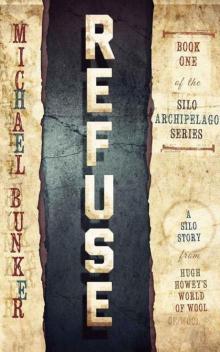 Refuse (The Silo Archipelago Series Book 1)
Refuse (The Silo Archipelago Series Book 1)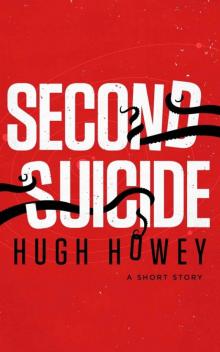 Second Suicide: A Short Story
Second Suicide: A Short Story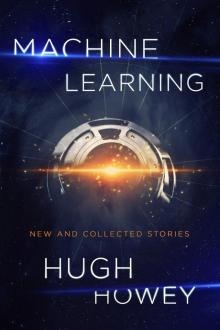 Machine Learning: New and Collected Stories
Machine Learning: New and Collected Stories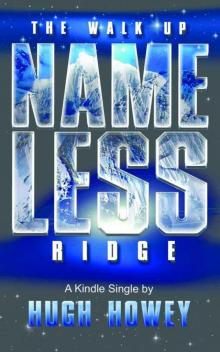 The Walk Up Nameless Ridge
The Walk Up Nameless Ridge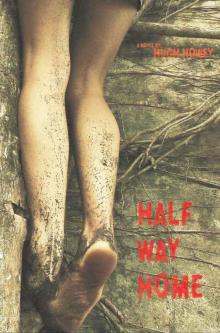 Half Way Home
Half Way Home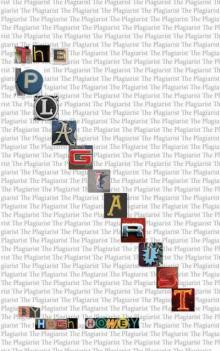 The Plagiarist
The Plagiarist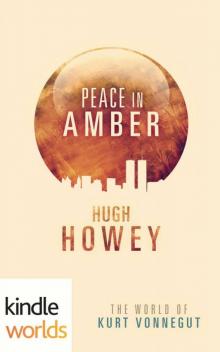 Peace in Amber
Peace in Amber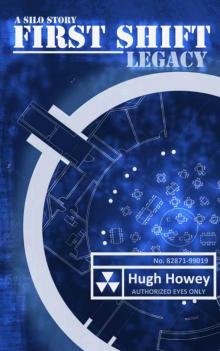 First Shift: Legacy
First Shift: Legacy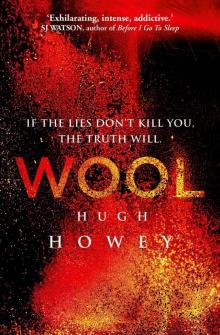 Wool
Wool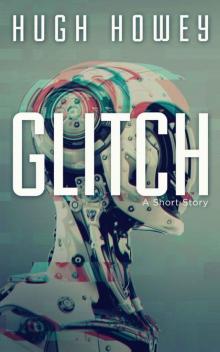 Glitch
Glitch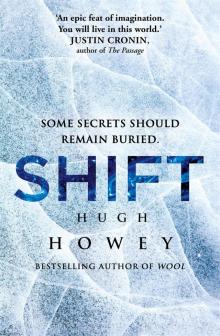 Shift
Shift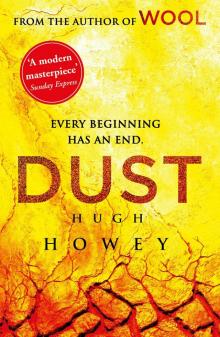 Dust
Dust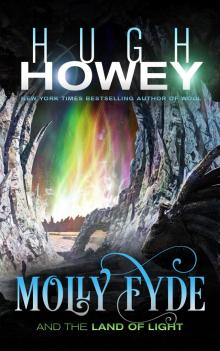 Molly Fyde and the Land of Light
Molly Fyde and the Land of Light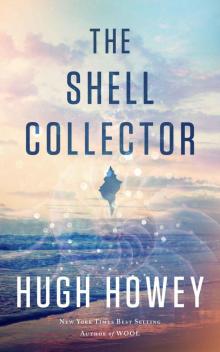 The Shell Collector
The Shell Collector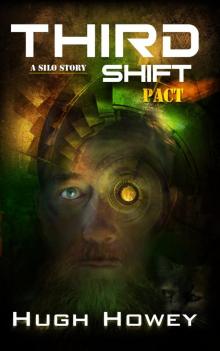 Third Shift: Pact
Third Shift: Pact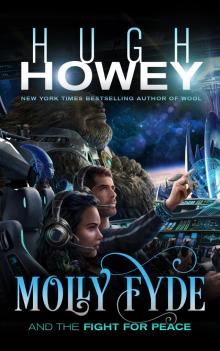 Molly Fyde and the Fight for Peace
Molly Fyde and the Fight for Peace Sand Omnibus
Sand Omnibus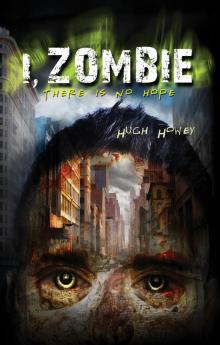 I, Zombie
I, Zombie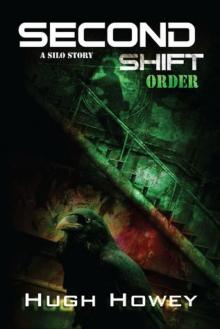 Second Shift: Order
Second Shift: Order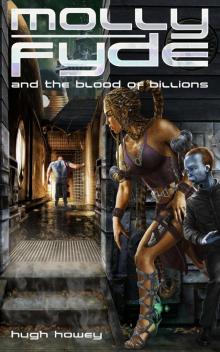 Molly Fyde and the Blood of Billions
Molly Fyde and the Blood of Billions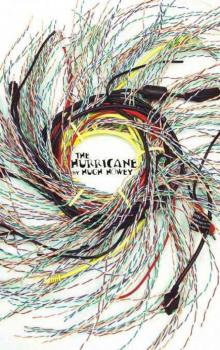 The Hurricane
The Hurricane The Box
The Box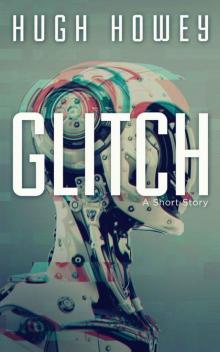 Glitch_A Short Story
Glitch_A Short Story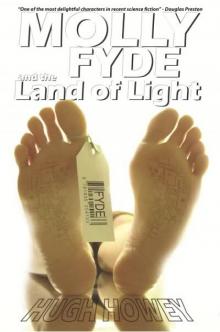 Molly Fyde and the Land of Light tbs-2
Molly Fyde and the Land of Light tbs-2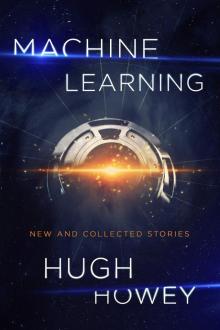 Machine Learning
Machine Learning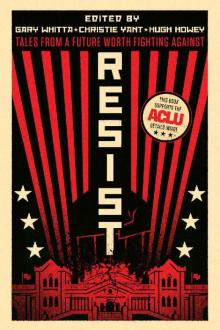 Resist
Resist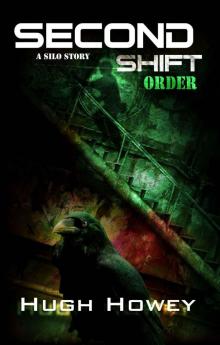 Second Shift - Order (Part 7 of the Silo Series) (Wool)
Second Shift - Order (Part 7 of the Silo Series) (Wool)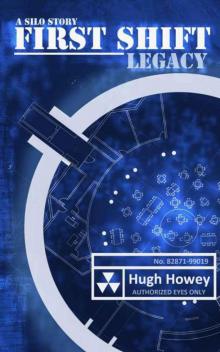 First Shift - Legacy s-1
First Shift - Legacy s-1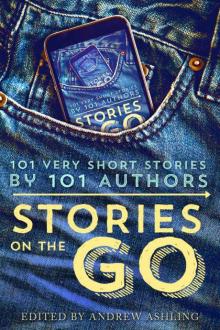 Stories on the Go: 101 Very Short Stories by 101 Authors
Stories on the Go: 101 Very Short Stories by 101 Authors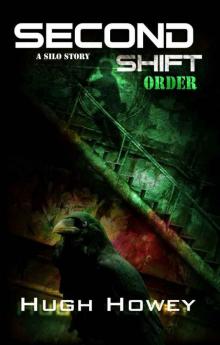 Second Shift - Order s-2
Second Shift - Order s-2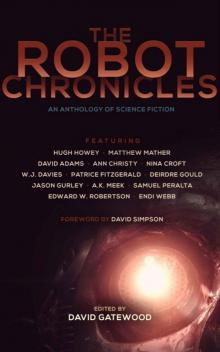 The Robot Chronicles
The Robot Chronicles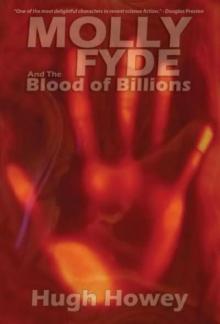 Molly Fyde and the Blood of Billions tbs-3
Molly Fyde and the Blood of Billions tbs-3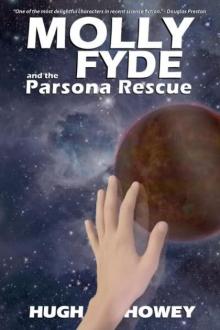 Molly Fyde and the Parsona Rescue tbs-1
Molly Fyde and the Parsona Rescue tbs-1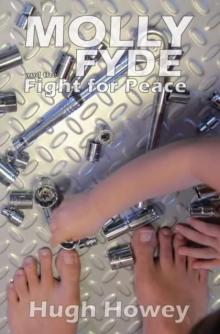 Molly Fyde and the Fight for Peace tbs-4
Molly Fyde and the Fight for Peace tbs-4 Sand
Sand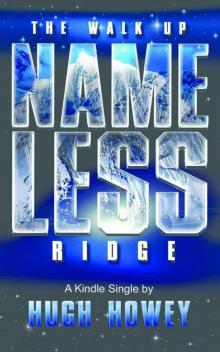 The Walk Up Nameless Ridge (Kindle Single)
The Walk Up Nameless Ridge (Kindle Single)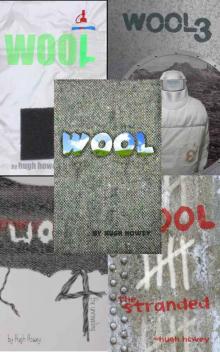 Wool Omnibus Edition (Wool 1 - 5)
Wool Omnibus Edition (Wool 1 - 5)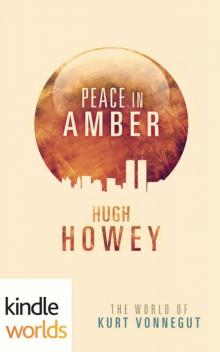 The World of Kurt Vonnegut: Peace in Amber
The World of Kurt Vonnegut: Peace in Amber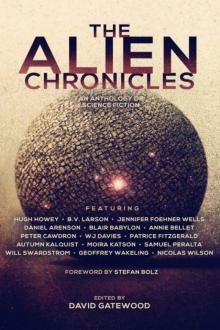 The Alien Chronicles
The Alien Chronicles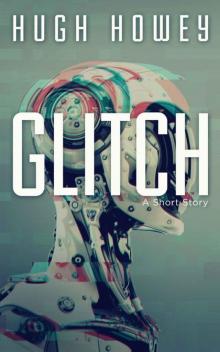 Glitch: A Short Story (Kindle Single)
Glitch: A Short Story (Kindle Single)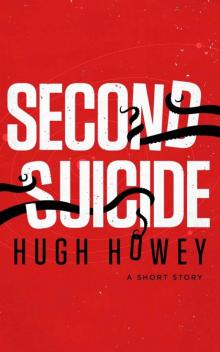 Second Suicide: A Short Story (Kindle Single)
Second Suicide: A Short Story (Kindle Single)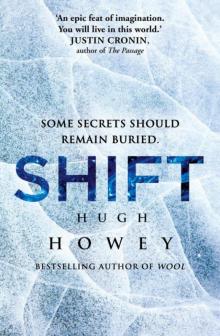 Shift (silo)
Shift (silo)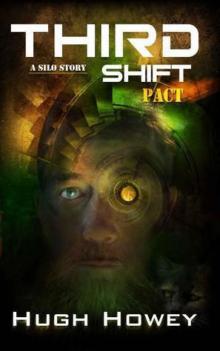 Third Shift - Pact
Third Shift - Pact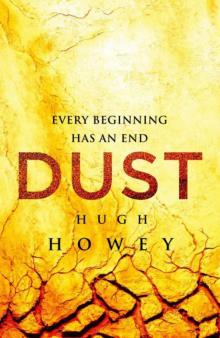 Dust s-9
Dust s-9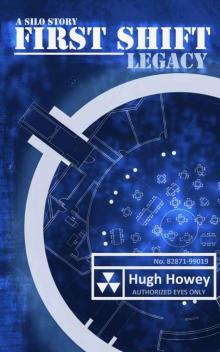 First Shift - Legacy (Part 6 of the Silo Series) (Wool)
First Shift - Legacy (Part 6 of the Silo Series) (Wool)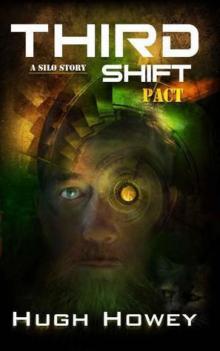 Third Shift - Pact s-3
Third Shift - Pact s-3 Sand: Omnibus Edition
Sand: Omnibus Edition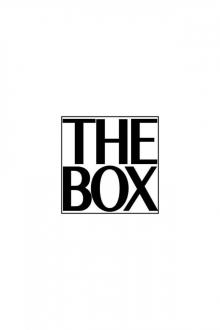 The Box: A Short Story
The Box: A Short Story